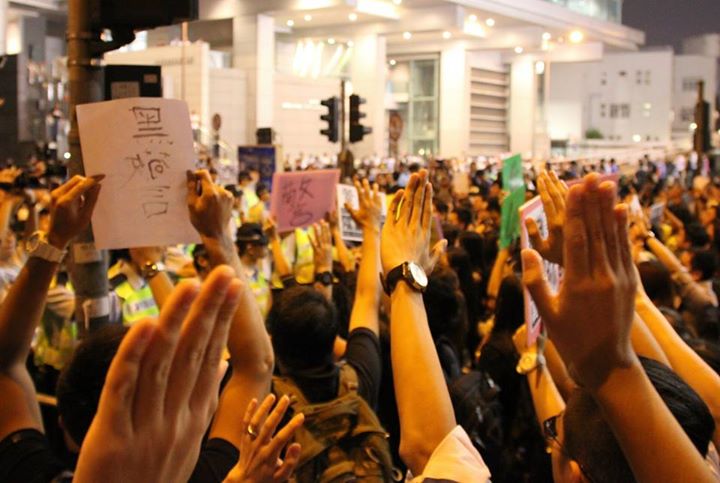
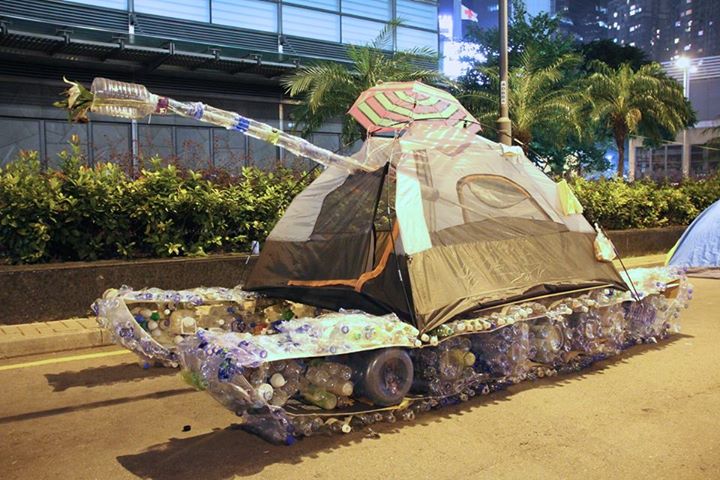
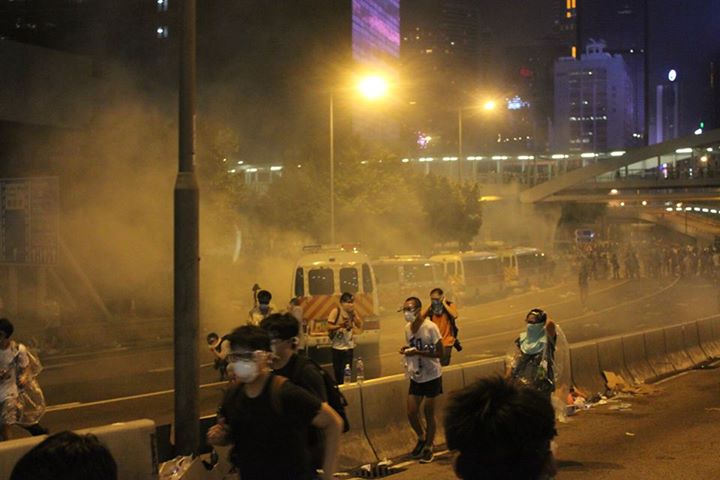
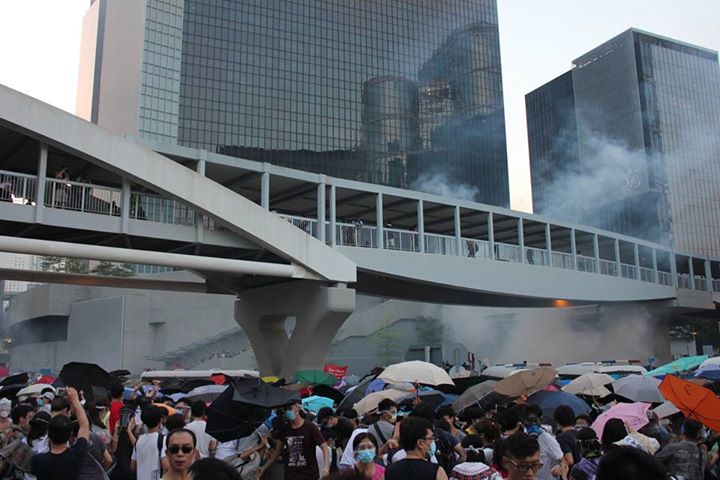
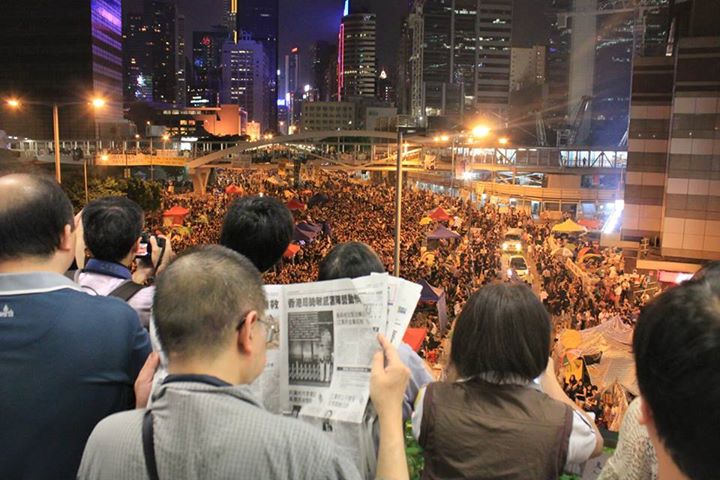
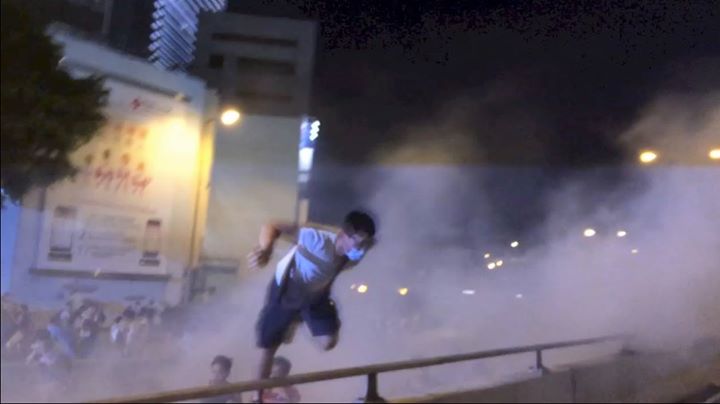
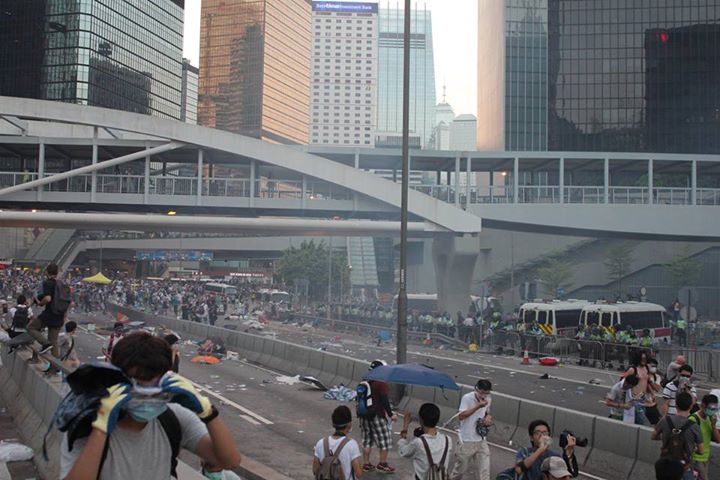
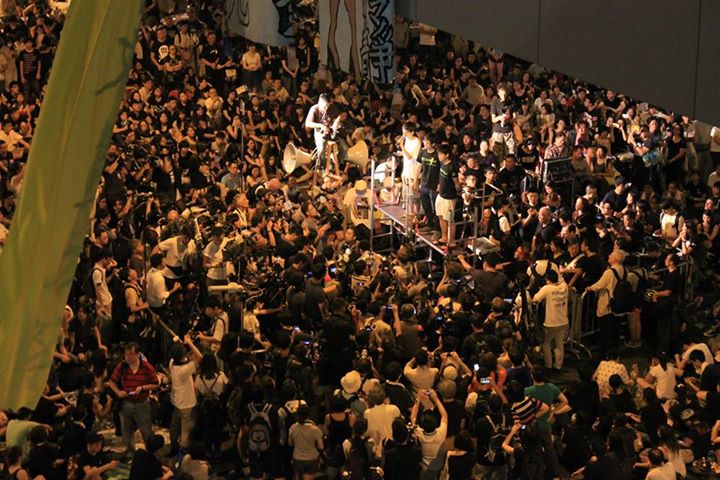
Photo Credit: David William Hill
edited and introduced by Louise Law, with Henry Wei Leung
The call for democracy and universal suffrage by Hong Kong people reached critical mass at the end of September 2014, when tens of thousands of protesters occupied the main roads in the city’s central areas. The protesters have been extremely peaceful and organized, but on the second day of protests, the police fired 87 rounds of tear gas into a crowd whose only defense was folding umbrellas. This police action enraged the public, including poets deeply concerned with what has now been called the Umbrella Movement. Fleurs des lettres, a local literary bimonthly in Chinese, kept pace with the movement by launching a Facebook campaign to circulate reactions from authors and poets, in order to rally support as well as to comfort, encourage, inspire, and unify protesters. Among the activities have been outdoor poetry readings at the protest sites. The two poems selected here are from the first days’ campaign and readings.
Two months have passed since then. The protests have seen police beatings, gang activity, crowd violence, upgraded forms of pepper spray, projectiles and excrement thrown from lethal heights, the formation of opposing protests, and rivalries and dissent within the camps. One of the three occupied sites, Mong Kok, was completely cleared by police one morning and reoccupied that same evening; a fourth site in Tsim Sha Tsui was raised and then scattered. Altars to Guan Yu, Jesus Christ, and the Buddha have been built, destroyed, and built again. Each of the remaining sites, including Admiralty and Causeway Bay, have become fragile museums for sculptures, paintings, quilts, banners, origami, t-shirt screen prints, and other visual artworks; and have housed speeches, discussions, soapboxes, class lectures, tutoring, film screenings, ukulele lessons, meals, haircuts. A massive banner proclaiming the demand for genuine universal suffrage was bolted into the symbolic peak of Lion Rock, then removed by authorities, only to be hung again from other hills and heights. Yellow umbrellas have opened at graduations and gatherings. Eloquent student representatives have met with government officials only to be told, in effect, that Hong Kong has no control over its own fate. Three of these students have booked a flight to Beijing to attempt a meeting with China’s government, and have been turned back at the gate because their home-return permits are no longer valid. Many more, including those only marginally involved in the protests, have also found themselves banned from “home.” Mong Kok has been cleared again and remains volatile with a continued police presence; unprovoked police brutality against pedestrians has become indiscriminate. Figureheads of the movement have accepted arrest. Meanwhile, the protests continue to be largely peaceful, articulate, and dialogic, with no individual claiming leadership nor attempting to command the masses.
The two poems selected here are a reminder of the first days. They are also an artifact, a document of local voices speaking for themselves in the face of being revised by an official history.
Photo Credit: Henry W. Leung
Metaphor is on strike
by Chan Lai Kuen
Metaphor is on strike
and there’s pepper spray to eat,
…hard to say how many peppers were used.
Tear gas tastes just like tear gas.
Scenes of police administering it on the citizenry
are like what –
like police, pitching cans of tear gas, into bodies.
Riot police hold rifles, wear helmets, look
truly, like riot police
when they suddenly bear down
with guns pointed.
This is unlike any supernatural experience.
This feels
like a row of goddamn guns pointing down on you.
Language is also on strike
I’m out, I’m gone, when mouths speak only obscenities.
Vulgarity is not on strike,
nor bravery nor dignity.
People pepper spray the faces of others
People ordered to hide in the background,
to lie and lie again
People giving first aid, sharing plastic wrap
(used to protect the eyes) and food
They offer us a fake election
We give them the common people
translated from Chinese by Amy K. Bell
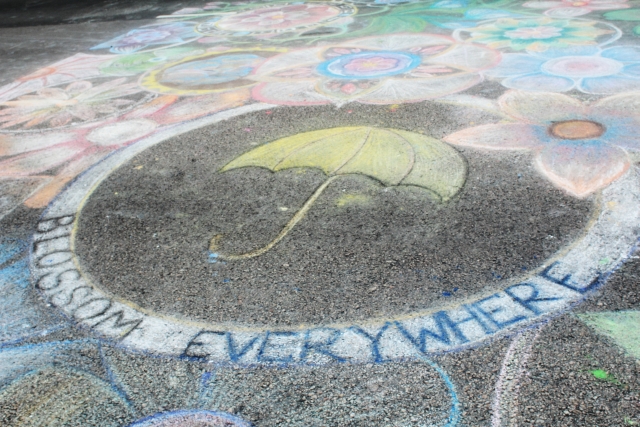
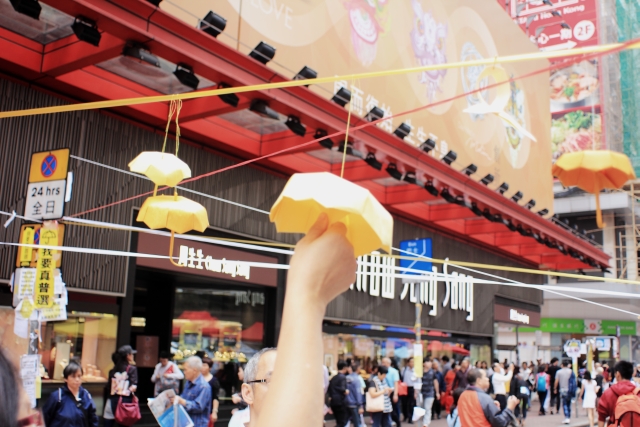
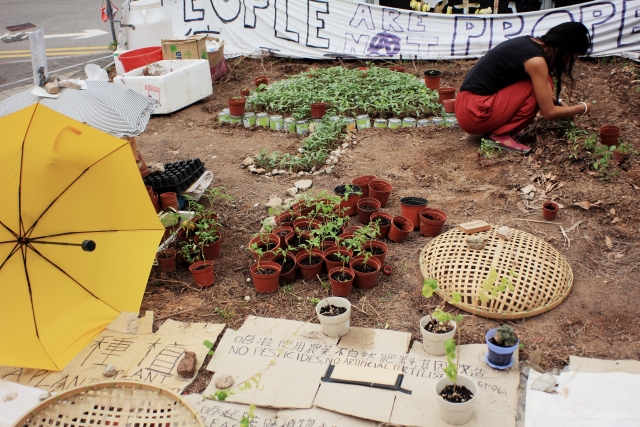
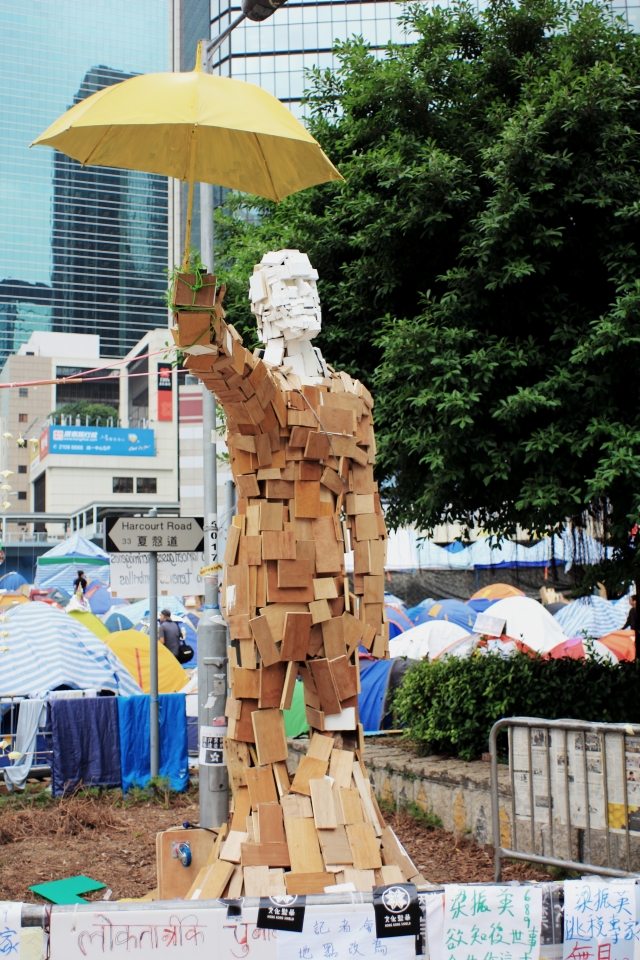
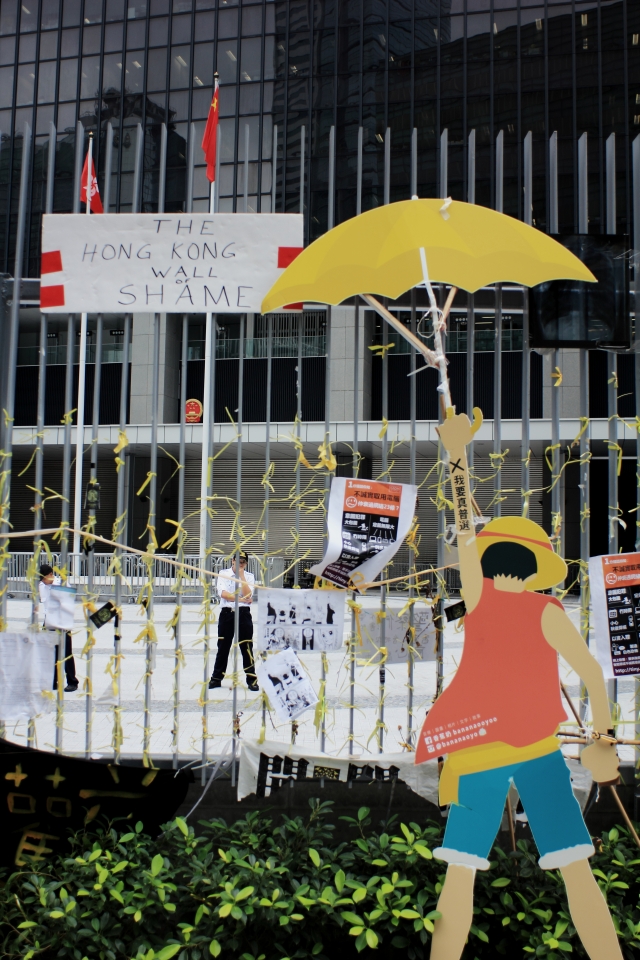
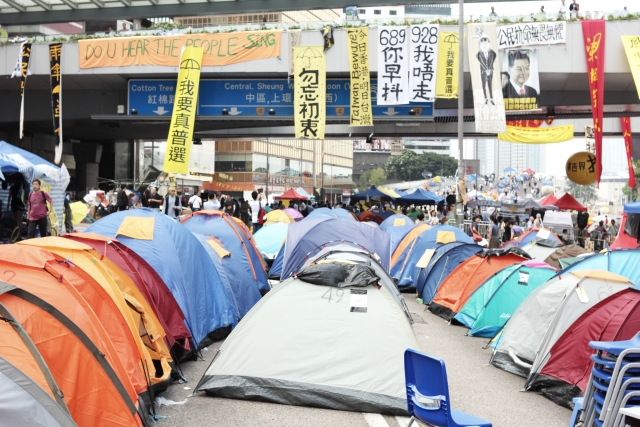
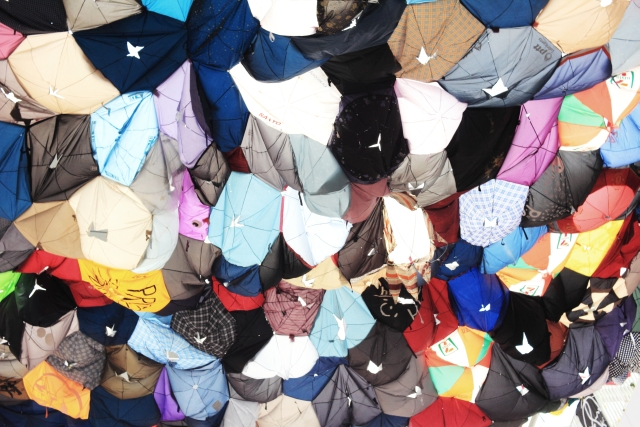
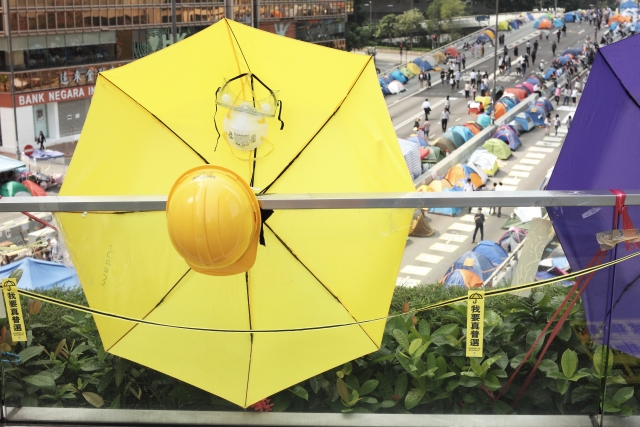
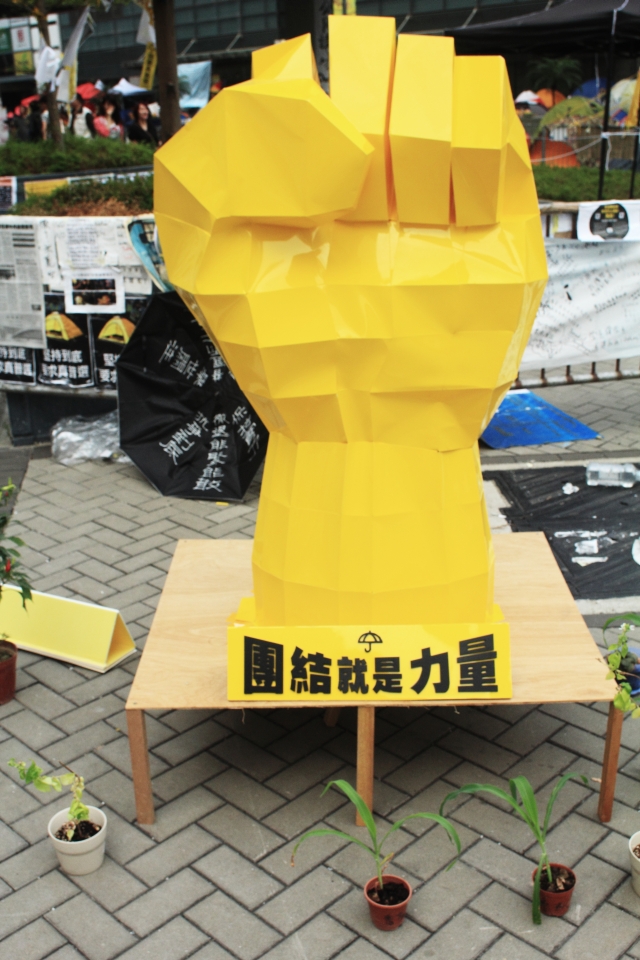
Photo Credit: Eddie Tay
The Canopy of Clouds Will Never Become a Flag
by Chung Kwok Keung
Our father has left us nothing but a single umbrella
On rainy days we leave it at home but when it's sunny
We carry it around so it has nothing to do
We caress its texture and feel its coarseness
Hang it on the rail or behind the door so we can look at its exposed bones
But it feels heavy, firm and straight, looking directly at the sky and reaching the earth.
Now, a Mother Umbrella has emerged out of the land full of smoke
Protecting our sight, the air, the freshly shed tears
Peppers should stay in dishes, and dream in earth
Young onions sprout one by one like rain
Say Good Morning to birds, clear the roads for sunshine
Open the umbrella, because the canopy of clouds will never become a flag.
translated from Chinese by Tammy Ho Lai-Ming


